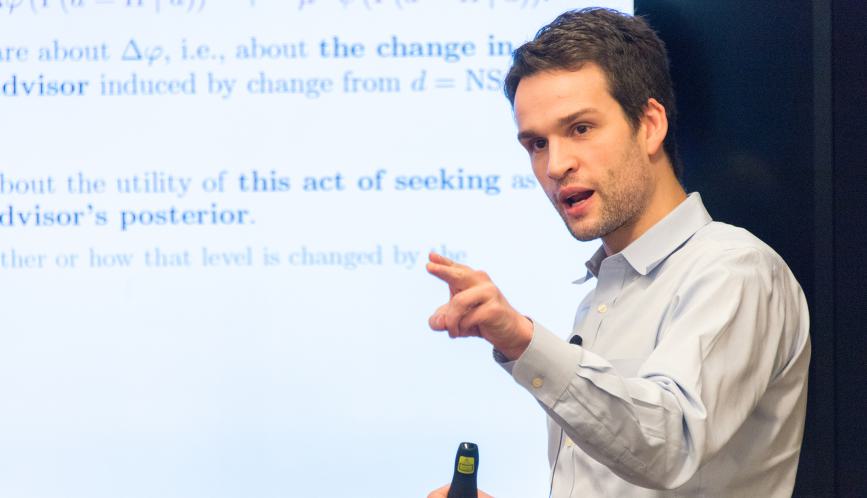MIP network member Benjamin Golub is an Assistant Professor of Economics at Harvard University. His research focuses on microeconomic theory and, in particular, social and economic networks: how these networks form when agents invest strategically in relationships, how information is transmitted through them, and how they mediate important economic processes such as group cooperation. Recent work has looked at which financial networks are sensitive to sudden breakdowns and if a network perspective can be used to understand how much scope for cooperation there is in complex favor-trading problems such as pollution reduction. Golub received his Ph.D. in Economics from Stanford University, in the Graduate School of Business, in 2012.
I study social and economic networks -- for example, a network of personal contacts in a school, workplace, or village. One of the main functions of these networks is to mediate learning. People often make important decisions based on information conveyed by friends or acquaintances -- for example, about a job they should apply for or a product they should try. My research focuses on how these processes work, how they can lead to inequality, and how policymakers can intervene to help. A recent paper I am excited about investigates why people don't ask their contacts for information or advice. In field experiments in India, we find that concern about revealing a bad attribute, such as ignorance, can deter learning considerably -- especially between people who are not close friends. This can produce a situation where people talk, but not about the most useful things, and some remain in the dark about opportunities that could substantially improve their lives.
What areas in the study of inequality are most in need of new research?
Access to information plays a huge role in access to economic opportunity. For example, simply telling people the average returns to schooling can have a large effect on their demand for education, as Robert Jensen's research has shown. But policymakers often find it difficult to directly communicate information to those who can benefit the most from it. For example, top colleges have trouble convincing talented students from poor backgrounds that they can be admitted and that financial aid will make it possible for them to attend. Activating social learning between peers is a natural alternative. We need better theories to explain and predict which transmission channels are effective for different kinds of information, and when and how we should leverage social learning to mitigate economic inequality.
What advice do you have for emerging scholars in your field?
My coauthor Arun Chandrasekhar has taught me how important it is, in building a theory, to talk to the people in the situations you are studying: ask them what they worry about and how they think through their decisions. Rigorous economic modeling and econometric analysis are essential, but so is an ear for what rings true in the relevant slice of real life. Training that ear can be slow, but it is worth it. We spent a lot of time talking with villagers about what stops them from asking questions. The things they told us were indispensable in building our theories of the stigma of seeking information.



